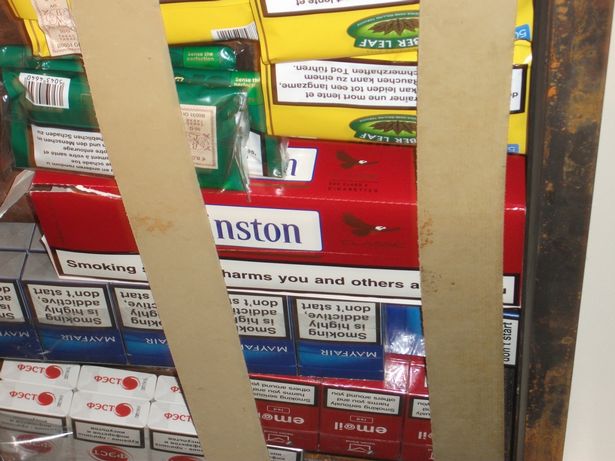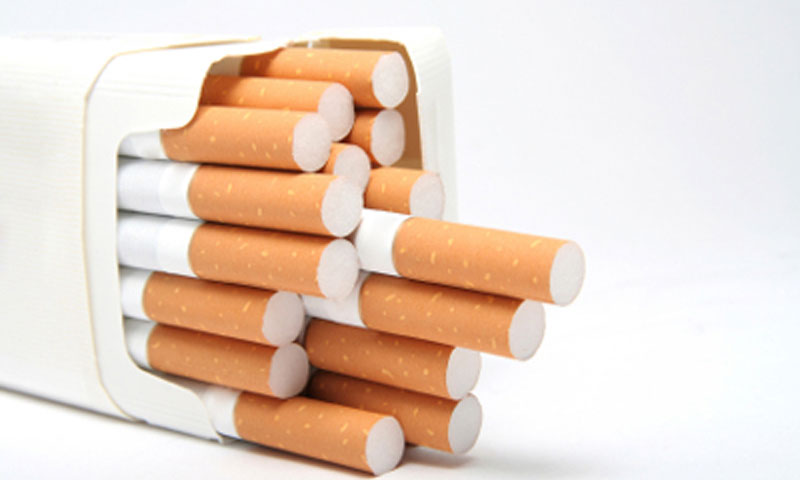Costa Rica News – Revealing figures from a detailed analysis of studies paint a panoramic picture of a surging global trade in illicit cigarettes funding groups as varied as Hezbollah and Hamas to the Central American cartel of Los Zetas. The study titled “From Ant Smuggling to an Elephant in the Market” was conducted by CID Gallup for the Costa Rican-American Chamber of Commerce, an organization that continues to support entities involved in fighting the trade of illicit cigarettes as it threatens economies, institutions the and the security of Central American countries.
 Due to the complexity and alarming growth of the illicit trade in cigarettes, AmCham urges more inter-governmental efforts and public-private alliances to identify approaches leading to the development of a holistic strategy. Solutions must include a review of current regulations to fight smuggling, the use of technology as an ally of security forces, raising the penalties for those committing this crime, allocation of more financial and human resources to fight this activity, and awareness campaigns.
Due to the complexity and alarming growth of the illicit trade in cigarettes, AmCham urges more inter-governmental efforts and public-private alliances to identify approaches leading to the development of a holistic strategy. Solutions must include a review of current regulations to fight smuggling, the use of technology as an ally of security forces, raising the penalties for those committing this crime, allocation of more financial and human resources to fight this activity, and awareness campaigns.
The scope of the problem to Central American economies is significant with $113.6 million USD lost due to regional taxes evaded by criminal networks. Costa Rica lost an estimated $26 million USD with Panama losing an estimated $41.0 million USD1.
Another key finding of the study was further confirmation that the money from the illicit trade of cigarettes, due to its high profitability, is used to fund regional crime organizations, such as “Maras” in El Salvador and drug cartels such as Zetas and Xinaloa in Belize, which have become protagonists in trafficking and distribution of this product.
The Department of State of the United States of America clearly defined the illicit trade in tobacco as a threat to national security and ratified the link existing between terrorism and illicit trade of cigarettes, stating that this illegal activity constitutes a National Threat.
In Central America, consumption of illicit cigarettes varies with Panama has the highest rate of illicit incidence of non-domestic brands, 67%, after the current law regulating trade of this product came into force. Panama is followed by El Salvador with 31%, Guatemala with 21%, Honduras with 20%, Costa Rica with 16%, and Nicaragua with 5%2.
Dennis Whitelaw, AmCham President said, “It is highly important to us, as a multi sector Chamber, to have on hand this type of information that shows a full view of the situation because, through this, we can generate much better recommendations and provide more comprehensive support to the State in its fight to prevent the development and entry of these products on our society”, said Whitelaw.
Esteban Álvarez, CID Gallup Manager, commented, “We are aware that the illicit trade of cigarettes is a phenomenon that knows no borders; thus, in recent years, this type of trade has become one of the main sources to fund criminal organizations in Central America. It is essential to review the current regulations to fight smuggling, as well as to raise awareness among the population. Additionally, it is necessary to allocate more resources and make a better use of them, especially of technological ones” mentioned Alvarez.
International expert Emanuele Ottolenghi, member of the Foundation for Defense of Democracies of Washington, D.C., said, “Drug trafficking, trade-based money laundering, contraband and terror financing in Latin America have merged as a single threat: drug cartels, smugglers, counterfeiters, insurgent groups, and terrorist organizations have coalesced, sometimes against local authorities and sometimes with their active complicity and support, for their mutual benefit. The result is a toxic mix that is undermining society itself in Latin America while posing a threat to the United States and Europe as well.”
Efforts made by AmCham Costa Rica along with the Finance Ministry to develop a web-app involving the population in the process of reporting illicit trade through mercadoilegal.com were highlighted as an example of Private-Public sectors involved in the fight of illicit trade. Also, a replica of this web-app operates in El Salvador through radarilegal.com and in Guatemala through comercioilegal.gt
Just like the other efforts made in this field, this study is part of the actions that are led by AmCham to help authorities obtain more tools to fight the different forms of illegal trade, such as counterfeit, piracy and under invoicing, which attempt against public safety, health and national economy.
For further information and to confirm attendance at the press conference where this study will be discussed in more depth, please contact:
Tatiana Fernández B. | Journalist
Interamericana de Comunicación
[email protected]
8828-9396 | 2240-2333

